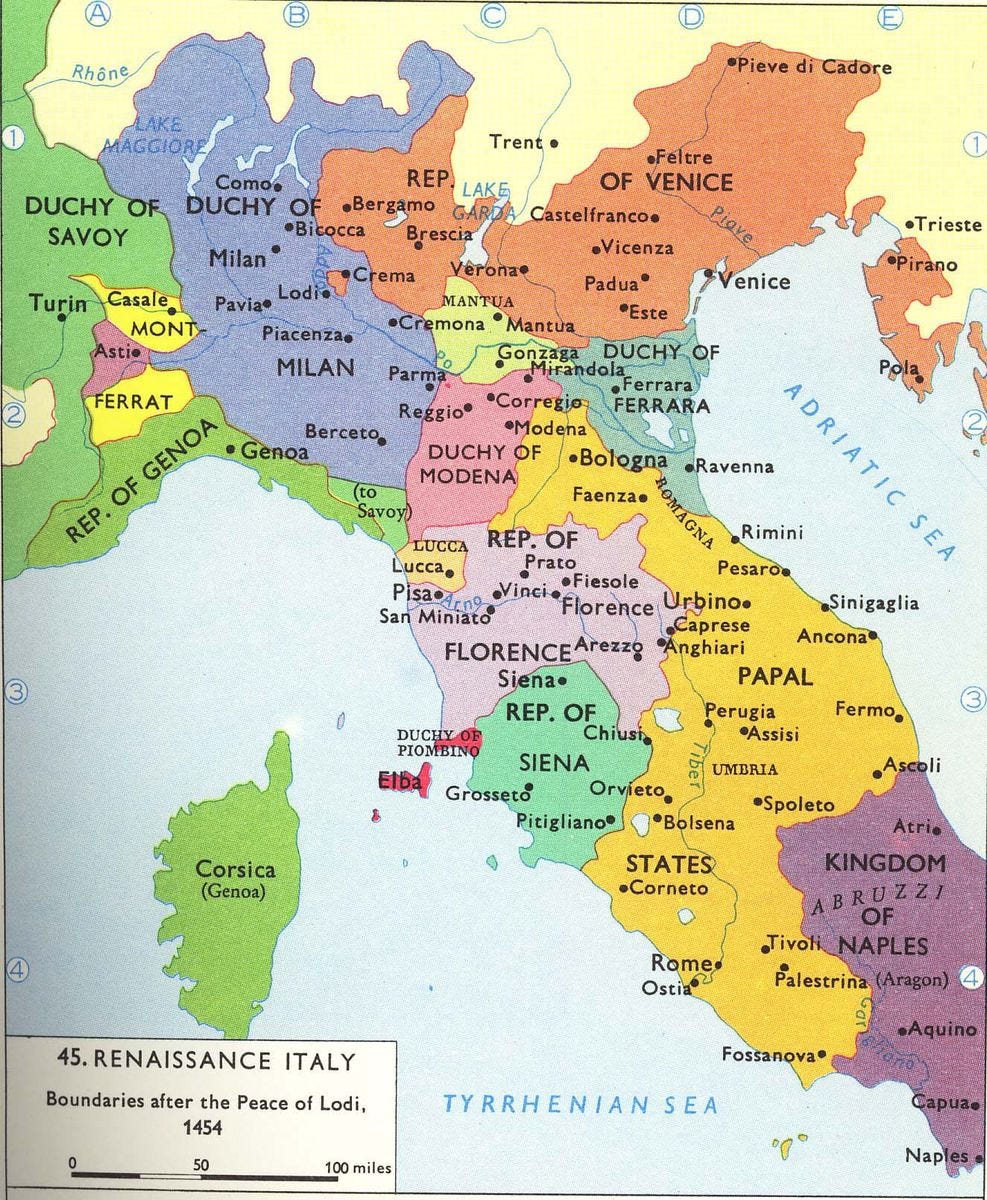Machiavelli's world is another good history lesson for understanding what a multipolar world will look like.
Italy was divided between city states, small principalities, kingdoms, and the Papal States, with large outside powers Spain, France, and Germany lurking nearby and intervening at times. There were old factions from earlier times, the Guelfs and the Ghibellines, still having import. The Guelfs had been a pro Papacy faction and the Ghibellines had been a pro Holy Roman Empire faction, but that conflict had largely ended outside of Italy but the old factions continued.
Most of these states had internal competition for power as well. Local factions often drove out their enemies when they took over. Rulers were deposed, marriages and other times existed, and preventing domination by one group was a key.
One of the most dangerous moves was for a alliance to try and pull in a major foreign power to settle a minor local conflict. A king of France or Holy Roman emperor would disrupt the situation and might decide to stomp out the relative independence of these states.
In such a world, maintaining a balance of power was essential. If a pope became too strong, then he would need to be opposed by a coalition. All in all it was a diplomatic mess and constantly at risk for disaster.
Successful rulers found a way to manage internal politics and avoid overly risky external conflict.
And anyone could attempt to call in one of the great powers but could not guarantee how that would turn out. Just because the King of France or the Holy Roman Emperor invaded Italy in your support did not mean that they would support you after they came into Italy. He could easily turn on you and demand tribute or remove you.
Internal politics were key. Every state had to maintain a proper internal balance, so that no faction didn't seek out outside aid to gain power locally. It served as a check so that even powerful families like the Medici or the Visconti had checks on the exercise of their power.
During much of Renaissance Italy, warfare was mostly conducted by mercenary companies. These professional soldiers had some incentive to avoid too much actual combat while trying to maintain their reputation.
In reality, even today, these same issues remain. Every nation has to maintain its internal balance and placate internal factions, even dictators.
For example, the Tsar, an autocrat, was deposed in 1917 for local factors. Russia had powerful factions that wanted modernization and liberalization. They were also very nationalistic and didn't like Germans subjects of the Tsar having power and influence. They pushed for the Great War and wanted to remove the Tsar because he wasn't fighting the war well enough in their minds. Plus Germany had sent Lenin back in an effort to destabilize Russia and gave him substantial funding to do so. Lenin did help destabilize Russia and contributed to the removal of the Tsar, and then later overthrew the new government as well, establishing the Soviet Union.
Just so Italian states had internal battles for power that led to external conflict that had similar bad results for the rulers. Being a successful ruler requires careful management and still guarantees no success.
For all of the “Unipolar Moment"of the last 30 years, we really do have a multipolar world. It is just that too many nations refuse to act as if this is true and follow the line of the translational rulers. The US hegemony, being informal in many ways, hides the use of power.
Machiavelli remains very relevant today.



